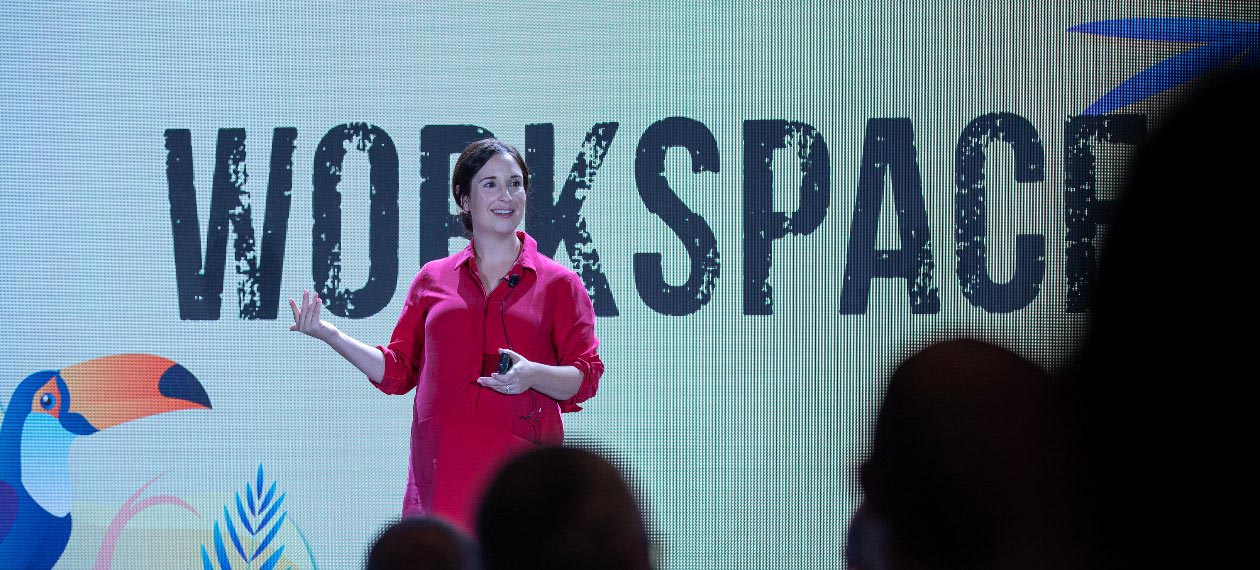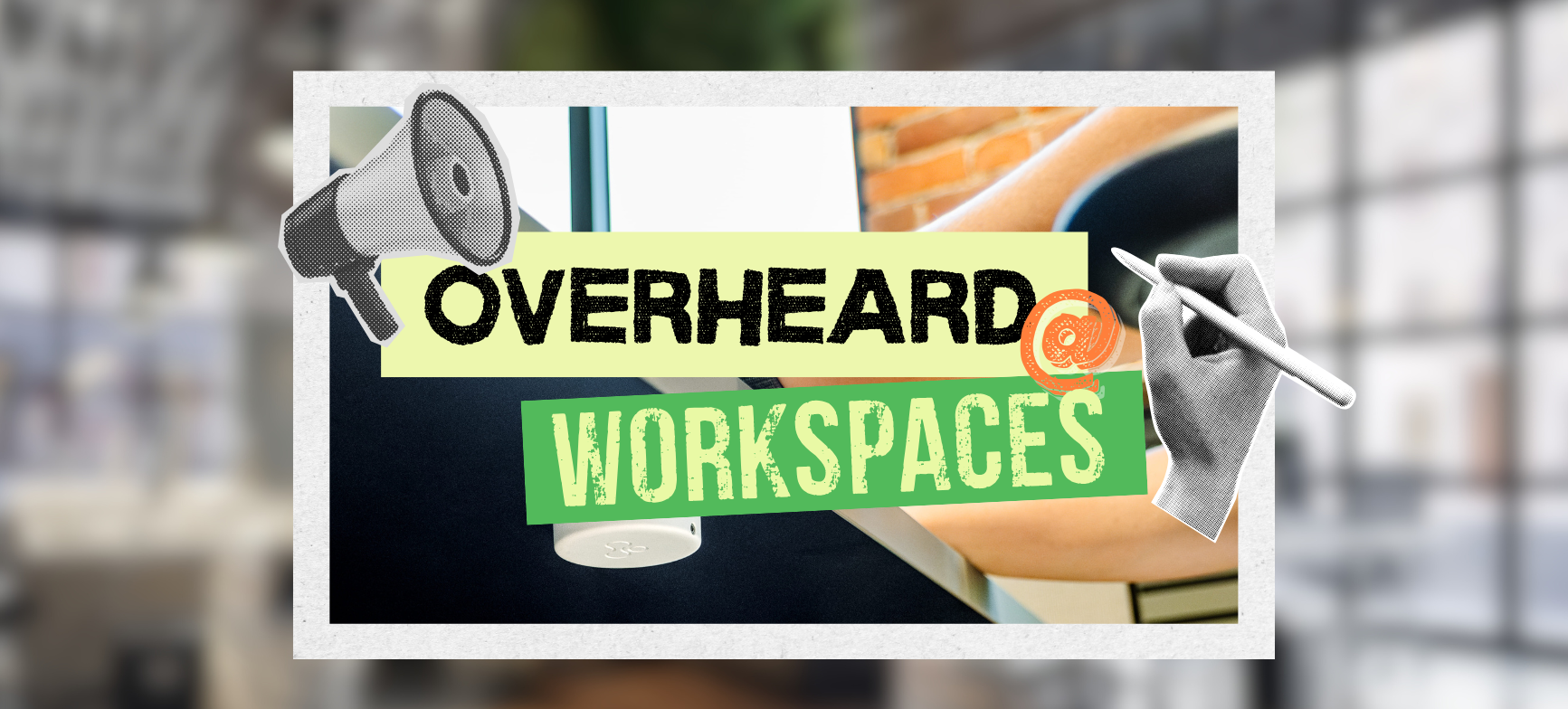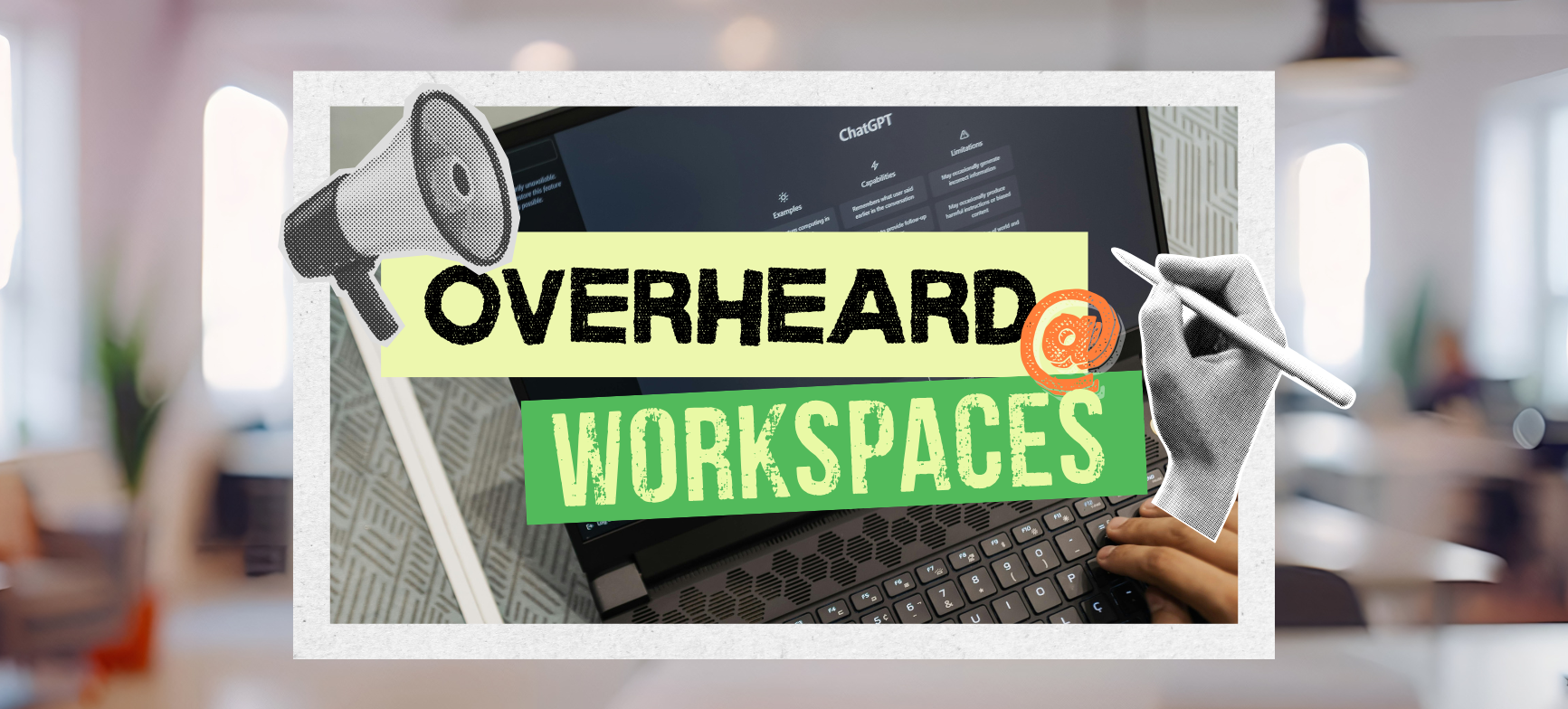"I see no hope for the future of our people if they are dependent on the frivolous youth of today." The Greek poet Hesiod said that sometime in the 8th century BC, but it could just as easily been said by any member of any upper management team in this era of #OKBoomer.
Some might say every generation has conflicts with every other generation and always has. Middle-aged and older folks see the younger generations as naïve, lazy, and entitled; young people see their elders as the out-of-touch fossils of a former era. Some people even devote their careers to understanding these generational differences—people like Kim Lear, generational research consultant and founder of Inlay Insights.
In a lively talk at WorkSpaces, Lear shared some of her academic insights into generational patterns, and how each generation is impacting the workplace, now and in the future.
She focused on three major trends during her talk: Generation X stepping into the C-suite; Millennials in management roles; and Generation Z entering the workforce.
Gen X Slackers in the C-Suite
Generation X—born between 1965 and 1979—was long ago written off as the "slacker" generation, the one defined by grunge music and the iconoclast ethos of Reality Bites, and that sweeping dismissal has mostly stuck. But now, those "slackers" are stepping into the C-suite, and their style of leadership looks a lot different than their Boomer predecessors.
In Lear's research, one of the defining characteristics of Gen X is deep skepticism. It makes sense: during their formative years, Gen Xers saw the explosion of the Space Shuttle Challenger broadcast live on television, of which they had watched 23,000 hours by the time they turned 20.
They saw the dawn of the 24-hour news cycle when CNN went on the air. They saw massive corporate scandals at WorldCom and Enron, the bursting of the dot-com bubble, the Clinton impeachment, the Exxon Valdez oil spill, the OJ Simpson murder trial and acquittal, the LA riots, the AIDS epidemic, and the beginning of decades of ongoing conflict with the Middle East. As a result, Generation X is deeply skeptical of social and political institutions—including the corporate world.
Another defining characteristic of Gen X is their fierce independence, in part because many became responsible for their own caretaking and time management as national divorce rates doubled during their formative years and single parents were still at work when the kids got home from school. That streak of fierce independence is very much present in the workplace, where Gen Xers mostly just want to be left alone to do their jobs—a stark contrast to the collaboration-oriented Millennials they manage. They will emphasize innovative independent contribution over groupthink, which could mean a shift away from open, collaborative spaces to more customized work environments.
"We can expect to see Gen X leaders pivot away from purely collaborative workspaces."
When the open office first came into vogue in the early 2000s, there was no data to support whether or not this workspace design trend actually accomplished what it claimed to. Now, that data does exist, and, well… it's still inconclusive. "I think we'll see Gen X leaders leaning much more on the data that is available in order to make informed decisions about the physicality of work," Lear predicted. This could (finally) mean the death of the open office. "In the coming years," Lear said, "we can expect to see Gen X leaders pivot away from the purely collaborative workspaces that have dominated the last two decades."
Millennials Move into Management
The oft-maligned Millennial generation was born between 1980 and 1995. Technology and violence have had an enormous impact in their lives: not quite digital natives, Millennials saw the dawn of the smartphone and social media, and adapted to living their lives online. The experience of terrorism at home was also a significant part of their formative years: the Oklahoma City bombing, 9/11, and mass school shootings (Columbine, Virginia Tech) ushered in a new American reality.
This backdrop of violence created a cultural moment that led to Boomer parents pulling their Millennial children in closer, and family structures changed dramatically in a very short amount of time. Millennials grew up in an era of more collaborative family structures, and this was also when classrooms shifted to group-based seating configurations rather than lecture-style classrooms, thought to encourage better conflict resolution skills and create better leaders. (It did.) But for all their positive leadership skills and collaborative mindsets, Millennial progress was hobbled by the Great Recession, a professional and financial blow from which the entire generation might never recover. While their Gen X managers might do away with the highly collaborative Millennials' beloved open office, the Millennial "AirSpace" design aesthetic, popularized by Airbnb and Instagram, isn’t going away anytime soon.
As Millennials are getting older, moving into management roles, having kids and raising families, they have shifted the gendered social constructions around parenthood, with more fathers taking on more domestic responsibilities and more mothers contributing financially on the home front.
With more women in the workplace being more vocal, we're now seeing changes in the physical work environment, such as areas for women to pump breast milk. There has also been a rise in female-focused workspaces like the Coven, the Riveter, and the Wing, further underscoring the extent to which the "traditional" workplace was built for traditional masculine practices.
The rise of the dual-income household during the Millennials' formative years have led to certain design considerations in the workplace that weren't previously taken into account; namely, the "default" of male-focused design that left women out of the equation. Lear predicts that the next decade will see more balancing of the physical workspace as Millennial women continue to demand it and players like Coven gain traction.
Gen Z Enters the Workplace
While the Great Recession directly impacted Millennials' job prospects and long-term financial stability, Generation Z—born between 1996 and 2012—was directly impacted by witnessing what happened to Millennials. Many generations swear they don't want to be like their parents; Gen Z swears they don't want to be like their older siblings, who graduated college six figures in debt and had to move back home with their parents and work in the unstable gig economy.
Gen Z is the most diverse generation in history.
With an underlying economic anxiety fueled by uneven market recovery, they're graduating with degrees in STEM fields with apparent paths to careers, and immediately upon entering the workforce, they want to know about 401k plans and benefits packages. In addition to their increased pragmatism, as the children of Gen X, Gen Z has also inherited their parents' cynicism and are concerned with stability. They see through the falsehoods perpetuated by social media, and overwhelmingly feel that their own age cohort spends too much time online.
 |
"These young people grew up extremely tech-savvy," Lear said. "They are aware of all of the falsehoods they're being sold on social media, and we'll start to see a pendulum swing [towards disconnecting]." There is already an increase in tech-free summer camps and retreats, and the implications for the workplace will likely mean more emphasis on creating face-to-face engagement and a sense of community. "They want freedom and autonomy—they don't want their time policed—but there is this hunger to come together," Lear said. Gen Z is profoundly concerned about climate change, and will likely carry that concern into the workplace as much as other aspects of their lives. Sustainable building practices will be seen as mandatory, and not just a nice bonus.
In higher education, Gen Z students don't care about the climbing walls built for Millennials and their Boomer parents; they want services and support over comfort and amenities. These higher ed trends will also translate into the workplace, where the work-and-play amusement parks of corporate campuses will likely fall out of favor with a generation who won't be fooled by "perks" designed to keep people at work longer.
Generation Z is also the most diverse generation in history; communities, institutions, and workplaces that are not inclusive will simply not be able to compete with the ones that are. The past 20 years have seen incremental changes, but more transformational changes will be needed in the coming years.
As corporate real estate leaders look towards the future of work, taking generational differences into account for the ways in which they impact workspaces, Lear concluded, "It's not about right or wrong or better or worse. Every generation comes in and brings something new and unique into the workplace, and it's up to visionary leaders to figure out how to celebrate and leverage that."

Posted by
Join us at WorkSpaces!
The retreat for corporate real estate and workplace innovators.
Oct 4-6, 2026 | Santa Barbara, CA




-3.png)
-3.png)


-2.png)

Comments